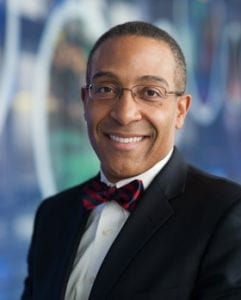
Byron Joyner, MD, MPA
Nearly a quarter of a Century ago, the Institute of Medicine’s, To Err Is Human: Building a Safer Health System was a call to action that shook the medical community into the realization that we needed to educate our residents and fellows in how to better safeguard patients from harm. Medicine, once a cottage industry, could no longer deny the age of big data and incredible innovation. We needed to learn from commercial aviation and other highly reliable industries, which for years had been delivering faultless services in the face of immense operational complexity. There were standards of quality in these businesses that we could apply to our own business of care.
The UW Housestaff Quality & Safety Committee (HQSC) is a group of residents and fellows which has, for more than 10 years, been learning about the business of delivering care more consistently and safely to our patients at UW Medicine. The HQSC learns about quality not just in theory but in practice. For example, HQSC members have studied the triumphs and more recent missteps of the Boeing Co., including taking a field trip to its Flight Safety Center, to learn about the indivisible relationship between an organization’s Culture of Safety, the quality of its products, and its financial bottom line.
I am so proud of the Housestaff Quality & Safety Committee, which began more than 10 years ago as a nod to the ACGME’s requirement that all housestaff learn more about—and actually participate in—patient safety and quality improvement experiences during their training. Although a brilliant idea, actualization of this concept has been challenging because the generations of physicians before had not learned the fine skills of quality improvement, the culture of safety.
This month, I’ve invited Drs. Chen Wu, Vickie Hau, and Vince Raikhel, faculty sponsor and co-chairs of HQSC, respectively, to share the incredible work of the HQSC.
Byron Joyner, MD, MPA
Vice Dean for GME and DIO
In spring 2015, after traveling four billion miles across deep space, the New Horizons spacecraft approached the planetoid Pluto at the outer fringes of our solar system for a cosmic rendezvous 10 years in the making.
In spring 2022, Dr. Bonnie Buratti, senior planetary scientist at the NASA Jet Propulsion Laboratory and a key figure behind the New Horizons mission—who has a bona fide asteroid 90502 Buratti named after her—spoke to members of the UW Housestaff Quality and Safety Committee (HQSC) about the extraordinary lengths to which NASA engineers go to ensure the safe transit of these extremely fragile, highly complex, astronomically expensive spacecraft. It was a topical lesson in proactive risk assessment and mitigation, one of the cornerstones of High Reliability Organizations which are distinguished by their complicated operations and failure rate far below statistical expectations (think commercial aviation, not the present state of U.S. healthcare).
Dr. Buratti’s talk was just one of many activities organized and curated by the HQSC to introduce core patient safety and quality improvement (QI) concepts to the GME community, inclusive of residents, fellows, and program faculty. Having recently notched its own 10-year milestone, the HQSC is busy at work improving existing offerings and gestating novel pathways for trainees to engage in this important domain. Current noteworthy programs include:
- The annual HOUSE journal meant to serve as a portable showcase of trainee-involved improvement projects; check out the latest edition and archived volumes here
- A generous project grant funding mechanism supported by Dr. Aalap Shah, an HQSC alumnus now practicing in southern California, that you can check out here alongside a portfolio of earlier projects involving HQSC members
- The SQuIRREL (Subcommittee on QI Event Reporting & Resident-Engaged Learning) program where trainee-submitted patient safety reports are reviewed in front of Harborview and UW Medical Center patient safety officers

Keep an eye out for monthly announcements and join a session to gain insights and get closure on a patient safety incident that you reported. You might even earn free coffee along the way. 😉
In addition to constantly tweaking these programs in response to feedback and measured performance (hey, we walk the QI walk as much as we talk the QI talk!), the HQSC hopes to expand its portfolio of experiences to better serve training programs, large and small, in teaching QI concepts and surpassing important accreditation requirements. We also recognize the immense wealth of talent, creativity, and entrepreneurial drive that resides within our GME community and hope to both nurture and harness these instincts for system improvement.
Ideas that we’re actively exploring include a streamlined, standardized pathway for QI manuscripts married to coaching support from project inception through publication; resumption of field trips to non-healthcare role models such as Alaska Airlines and the U.S. Army; and investigation of public-private coalitions to tackle health outcome determinants that reside outside the walls of our training hospitals.
A few of these ideas are in early prototype stages while others remain only conceptual. Propelled by the excitement of our residents and fellows and the support of their sponsoring programs, however, we’re confident that these ambitions can be realized. Big opportunities require bold vision, and as President Kennedy once reminded us at the start of the Space Age, bold visions are worth pursuing.
If this vision is one that you share, then please consider joining the HQSC if you are a resident or fellow or contacting us at uwhqsc@uw.edu if you are a faculty member, program director, or departmental leader interested in collaboration. HQSC is proud to have worked with UW Orthopaedics in the past to co-develop QI Match, a unique site meant to connect QI project leads to enthusiastic trainees, that recently went live with backing from the UW Center for Scholarship in Patient Care Quality & Safety.

Check out QI Match if you’re interested in posting or joining a project! And reach out to us if you’re at all curious about how HQSC could fit into your training program’s educational strategy. Let’s start a conversation about how we, together, can seek out our own New Horizons.
 .
.
Vickie Hau, MD
(Anesthesiology & Pain Medicine)
Co-chair
UW Housestaff Quality & Safety Committee

Vince Raikhel, MD
(Internal Medicine)
Co-chair
UW Housestaff Quality & Safety Committee

Chen Wu, MD
Faculty Director
UW Housestaff Quality & Safety Committee
